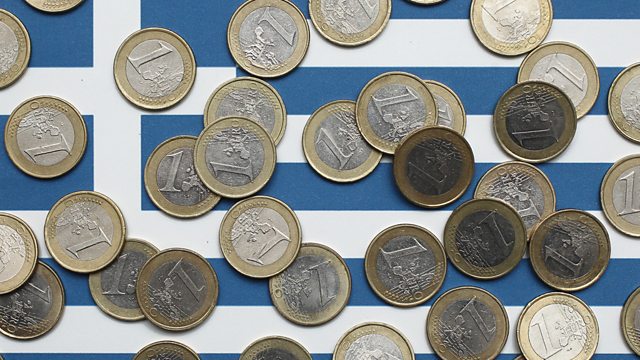Euro Paradoxes
Why paradoxes in economics of the eurozone nations make a political solution problematic and a currency union that is not in turmoil more than sixty years after its foundation.
So Slovakia has voted down the eurozone bailout plans - not really surprising when you learn that they are actually poorer than the Greeks.
It is expected that a second vote will be held soon and that it will succeed however the Slovakian situation shows once again what a huge political issue the bailout is becoming.
Slovakia is the second poorest country in the eurozone after Estonia and many Slovaks are asking why they should be forced to dip into their pockets to bail out richer fellow members.
This is just one of the many paradoxes of the proposed bailout as Justin Rowlatt discovers when the Βι¶ΉΤΌΕΔ's economics correspondent Andrew Walker sets him a eurozone quiz.
The euro is, of course, a relatively new currency - it celebrated it's 12th birthday this year. There are other much less well known but much more stable - and much more venerable - currency unions around the world.
Take, for example, the West African CFA Franc and its sister currency the Central African CFA Franc. They were created way back in 1945 and are still going strong. Between them they cover 14 countries - mainly former French colonies in West and Central Africa.
Our correspondent Thomas Fessy has been discovering just how useful traders find the CFA Franc in Dakar Senegal. Then Justin Rowlatt asks Professor Charles Goodhart of the London School of Economics why the CFA is proving so much more enduring than the stripling Euro.
And finally we have a letter from our regular commentator Wycliff Muga about the extraorinary risks some Africans will take to earn a bit of extra cash.
(Image Credit: Getty)
Last on
More episodes
Previous
Next
Broadcasts
- Wed 12 Oct 2011 07:32GMTΒι¶ΉΤΌΕΔ World Service Online
- Wed 12 Oct 2011 11:32GMTΒι¶ΉΤΌΕΔ World Service Online
Podcast
-
![]()
Business Daily
The daily drama of money and work from the Βι¶ΉΤΌΕΔ.


